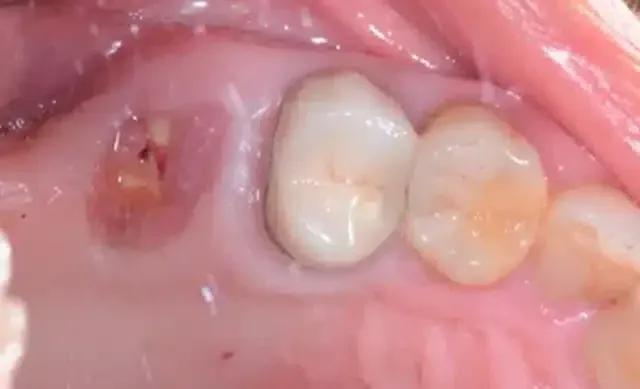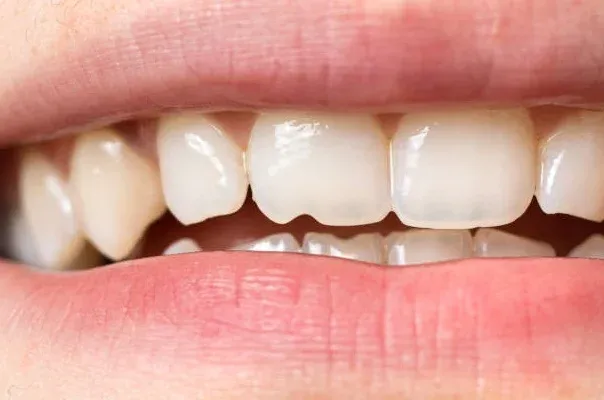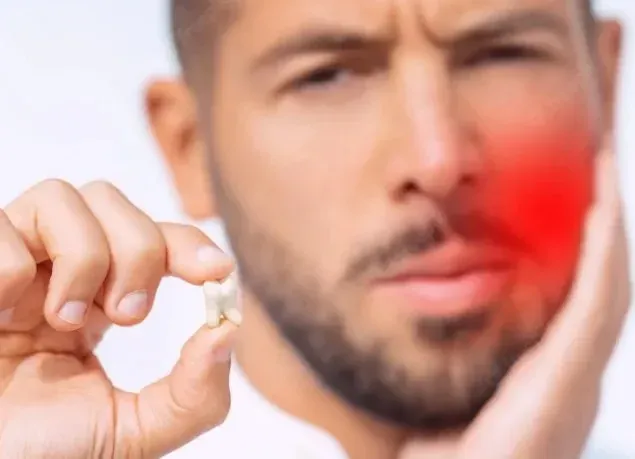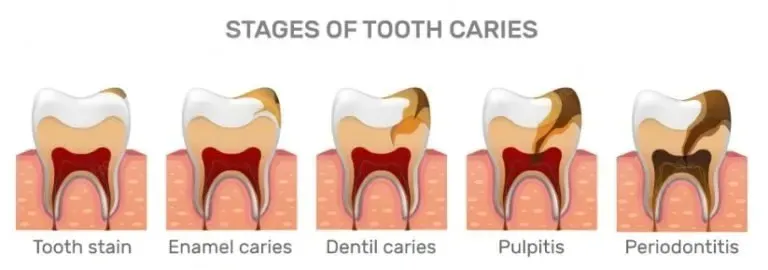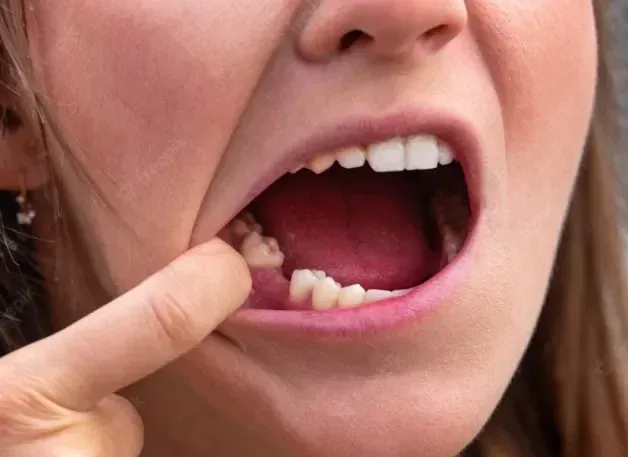Why Does Wisdom Tooth Pain Come and Go? Expert Guide 2026
Wisdom tooth pain can be one of the most frustrating dental experiences—especially when it seems to…
Wisdom tooth pain can be one of the most frustrating dental experiences—especially when it seems to appear out of nowhere, disappear for days, then return with a vengeance. If you’ve been wondering why your wisdom tooth discomfort is so unpredictable, you’re not alone. In 2026, we understand much more about the cyclical nature of wisdom tooth pain and how to manage it effectively.
The duration and intensity of wisdom tooth pain depend on several factors: the underlying cause, your age, overall health, and any existing medical conditions. Some people experience brief, mild discomfort that resolves on its own, while others face persistent, severe pain requiring professional dental intervention.
In this comprehensive guide, we’ll explore the reasons behind intermittent wisdom tooth pain, how long it typically lasts, and what you can do to find relief.
Why it helps: Provides fast-acting numbing relief for wisdom tooth pain with 20% benzocaine formula.
Why Does Wisdom Tooth Pain Come and Go?
The intermittent nature of wisdom tooth pain can be attributed to several dynamic factors that change as your teeth shift, your immune system responds, and inflammation levels fluctuate. Here are the most common reasons:
Bite Adjustment and Tooth Movement
As wisdom teeth erupt, they push against neighboring teeth, causing your bite to shift. This pressure isn’t constant—it varies depending on jaw position, chewing patterns, and even how you sleep. When the pressure increases, pain flares up; when it temporarily eases, the discomfort subsides.
Crowding and Shifting Teeth
Wisdom teeth often lack sufficient space to emerge properly. As they attempt to push through, they can crowd adjacent teeth and cause them to shift. This movement creates intermittent pressure on nerves and surrounding tissues, resulting in pain that comes and goes.
Inflammation Cycles
As wisdom teeth erupt, they irritate the surrounding gum tissue (pericoronitis). Your body’s inflammatory response naturally fluctuates—sometimes ramping up to fight perceived threats, other times calming down. This cyclical inflammation explains why pain intensity varies from day to day.
Infection and Bacterial Buildup
Partially erupted wisdom teeth create pockets where food particles and bacteria accumulate. When bacterial levels reach a certain threshold, infection and pain occur. As your immune system fights back or you improve oral hygiene, symptoms may temporarily improve—only to return when bacteria multiply again.
Nerve Pressure
An impacted wisdom tooth can press against nearby nerves intermittently, depending on jaw movement, swelling levels, and tooth position. When pressure on the nerve increases, you feel sharp or throbbing pain; when it decreases, relief follows.
Cyst or Tumor Development
In rare cases, fluid-filled cysts can form around impacted wisdom teeth. As these cysts grow and shrink, they create varying levels of pressure, leading to pain that comes and goes.
Tooth Decay
Wisdom teeth are notoriously difficult to clean due to their position at the back of the mouth. When decay develops at the gum line, it can cause intermittent pain—especially when eating or drinking hot, cold, or sweet foods.
If you’re experiencing persistent or severe wisdom tooth pain, it’s essential to seek dental care promptly. Your dentist can diagnose the underlying cause and recommend appropriate treatment, which may include antibiotics, pain management, orthodontic intervention, or extraction.
How Long Does Wisdom Tooth Growing Pain Last?
The duration of wisdom tooth pain varies significantly based on the underlying cause and individual circumstances. Understanding the typical timeline can help you know when to seek professional help.
Short-Term Pain (A Few Days)
In some cases, wisdom tooth discomfort lasts only a few days as the tooth breaks through the gum tissue. This acute phase typically resolves once the tooth has fully emerged or the initial inflammation subsides.
Medium-Term Pain (Several Weeks)
When wisdom teeth are partially impacted or causing crowding, pain may persist for several weeks. During this time, inflammation levels fluctuate, and the tooth continues attempting to find space in your jaw.
Long-Term Pain (Months or Longer)
If wisdom teeth are fully impacted, infected, or causing significant crowding, pain can last for months until the underlying issue is addressed. In these cases, extraction is often the only permanent solution.
Several factors influence how long wisdom tooth pain lasts:
- Age: Younger patients (late teens to early twenties) typically experience faster eruption and healing
- Overall health: A strong immune system can better manage inflammation and infection
- Oral hygiene: Good dental care can prevent complications that prolong pain
- Tooth position: Impacted teeth cause longer-lasting pain than those erupting normally
If your wisdom tooth pain lasts more than a few days, becomes severe, or is accompanied by swelling, redness, fever, or discharge, contact your dentist immediately. These symptoms may indicate infection or other complications requiring prompt treatment. For more information on the typical duration, visit our detailed guide on how long wisdom tooth growing pain lasts.
Why it helps: Specially designed cold compress wraps around jaw to reduce swelling and numb wisdom tooth pain effectively.
How to Stop Throbbing Wisdom Tooth Pain
Throbbing wisdom tooth pain can be debilitating, but several strategies can provide relief while you wait for professional dental care. Here are the most effective methods for 2026:
Over-the-Counter Pain Relievers
Non-prescription pain medications are your first line of defense against wisdom tooth discomfort:
- Ibuprofen (Advil, Motrin): Reduces both pain and inflammation; typically 400-600mg every 6-8 hours
- Acetaminophen (Tylenol): Effective for pain relief; can be alternated with ibuprofen for severe pain
- Combination approach: Many dentists recommend taking Tylenol and ibuprofen together for maximum relief
Cold Compress Therapy
Applying a cold compress to the outside of your cheek can numb the area, reduce swelling, and provide significant pain relief. Apply for 15-20 minutes at a time, with 10-minute breaks in between.
Warm Salt Water Rinses
Rinsing your mouth with warm salt water (1/2 teaspoon salt in 8 ounces of warm water) helps reduce inflammation, cleanse the area, and promote healing. Rinse gently 3-4 times daily, especially after meals.
Avoid Problematic Foods
Stay away from hard, crunchy, sticky, or chewy foods that can aggravate wisdom tooth pain or become trapped in the affected area. Stick to soft foods like yogurt, smoothies, mashed potatoes, and soup.
Maintain Excellent Oral Hygiene
Keeping the area clean is crucial for preventing infection and reducing pain. Brush gently around the wisdom tooth area and use an antiseptic mouthwash to kill bacteria. However, if you’ve recently had a tooth extracted, be sure to follow proper care guidelines—learn more about brushing after tooth extraction.
Clove Oil Application
Clove oil contains eugenol, a natural anesthetic and antibacterial compound. Apply a small amount to a cotton ball and place it near the painful wisdom tooth for temporary relief.
Seek Professional Dental Treatment
If pain is severe, persistent, or accompanied by other symptoms, professional dental care is essential. Your dentist may prescribe stronger pain medication, antibiotics for infection, or recommend extraction to permanently resolve the issue.
Ignoring wisdom tooth pain can lead to serious complications, including infection, cyst formation, damage to adjacent teeth, and jawbone problems. Early intervention prevents more complex and costly treatment later.
My Wisdom Teeth Are Coming In and It Hurts: What’s Happening?
Wisdom teeth typically emerge between ages 17 and 25, though this timeline varies. The eruption process can be uncomfortable or downright painful as these large molars push through gum tissue and attempt to find space in an already crowded mouth.
Why Wisdom Tooth Eruption Causes Pain
Several factors contribute to the discomfort associated with emerging wisdom teeth:
Genetic Factors: Your genetic makeup influences when wisdom teeth emerge and how much space is available in your jaw. Some people inherit smaller jaws that simply can’t accommodate these extra molars.
Oral Anatomy: The size and shape of your jaw and existing teeth determine whether wisdom teeth can erupt normally. Insufficient space often leads to impaction, where the tooth becomes trapped beneath the gum or grows at an angle.
Hormonal Changes: During late adolescence and early adulthood, hormonal fluctuations promote jaw growth and tooth development, triggering wisdom tooth eruption.
Common Complications During Eruption
- Impaction: When wisdom teeth can’t fully emerge due to lack of space or improper positioning
- Crowding: Pressure from emerging wisdom teeth can shift adjacent teeth, causing alignment issues
- Pericoronitis: Inflammation of the gum tissue surrounding a partially erupted wisdom tooth
- Cyst development: Fluid-filled sacs that can form around impacted wisdom teeth
The Science Behind the Pain
Wisdom tooth pain occurs when nerve endings in the jawbone, surrounding teeth, and gum tissue are stimulated by pressure, inflammation, or infection. These nerve signals travel to your brain, where they’re interpreted as pain. The intensity varies based on the degree of pressure, the extent of inflammation, and individual pain tolerance.
The key to managing eruption pain is addressing the underlying cause. Your dentist can evaluate your wisdom teeth using X-rays and clinical examination, then recommend the most appropriate treatment—whether that’s monitoring the situation, managing symptoms, or proceeding with extraction.
Why it helps: Gently cleans hard-to-reach wisdom teeth areas where traditional floss can’t reach, preventing infection and reducing pain.
When to See a Dentist About Wisdom Tooth Pain
While some wisdom tooth discomfort is normal during eruption, certain symptoms warrant immediate professional attention:
- Pain lasting more than 3-4 days without improvement
- Severe pain that interferes with eating, sleeping, or daily activities
- Swelling of the face, jaw, or lymph nodes
- Fever or signs of systemic infection
- Difficulty opening your mouth or swallowing
- Bad taste or odor in your mouth
- Pus or discharge around the wisdom tooth
- Bleeding that doesn’t stop with gentle pressure
These symptoms may indicate infection, abscess formation, or other serious complications requiring prompt treatment. Don’t wait for the situation to worsen—early intervention leads to better outcomes and less discomfort.
Prevention and Long-Term Management
While you can’t prevent wisdom teeth from growing, you can take steps to minimize complications and pain:
Regular Dental Check-Ups
Visit your dentist every six months for routine examinations and X-rays. Early detection of wisdom tooth problems allows for proactive management before severe pain develops.
Maintain Excellent Oral Hygiene
Brush twice daily, floss regularly, and use an antimicrobial mouthwash to keep the wisdom tooth area clean and reduce infection risk.
Consider Preventive Extraction
Many dentists recommend removing wisdom teeth in late teens or early twenties—before they cause problems. Younger patients typically experience easier extractions and faster recovery. If you’re considering this option, learn about how to prepare for wisdom teeth removal to ensure the best possible outcome.
Monitor Symptoms
Pay attention to changes in your wisdom tooth pain patterns. If intermittent discomfort becomes constant or worsens over time, schedule a dental appointment promptly.
Conclusion: Taking Control of Wisdom Tooth Pain
Understanding why wisdom tooth pain comes and goes empowers you to manage symptoms effectively and know when to seek professional help. While intermittent discomfort may be normal during eruption, persistent or severe pain signals a problem that requires dental intervention.
In 2026, we have more options than ever for managing wisdom tooth pain—from advanced pain relief strategies to minimally invasive extraction techniques. Don’t suffer in silence or hope the problem will resolve on its own. Consult with your dentist to develop a personalized treatment plan that addresses your specific situation and provides lasting relief.
Remember, wisdom tooth pain that comes and goes is your body’s way of signaling that something needs attention. By taking action early, you can prevent complications, preserve your oral health, and return to pain-free living.


